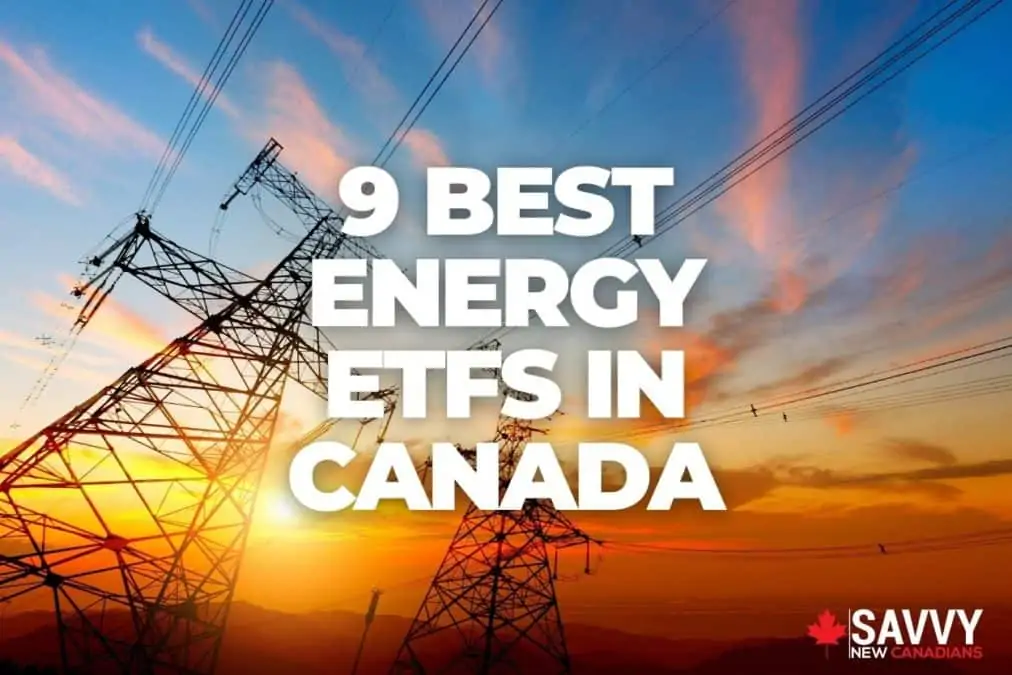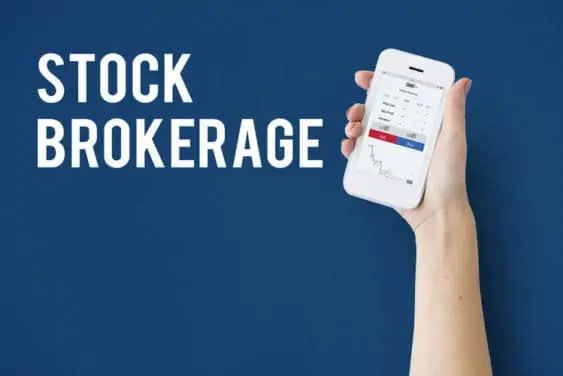Depending on your current asset allocation and investment needs, the best energy ETFs in Canada can be a good addition to your investment portfolio.
Energy is one of Canada’s largest sectors. In 2020, the industry accounted for 8.1% of Canada’s GDP and employed over 293,000 people.
The industry presents a great investment opportunity but choosing the right company can be tricky.
In the energy sector, there are several hundred companies with operations ranging from oil and natural gas to green energy. This includes a range of producers that work on the extraction, transportation, and refining of products.
With so many companies operating in such a wide range of areas, it can be difficult for investors to pick a winner.
Researching dozens or even hundreds of companies and understanding their business model, financial statements, and long-term vision would take a lot of time.
To make things easier, Canadians can invest in Canadian energy ETFs. These energy sector ETFs are a great way to gain exposure to various companies within the sector.
Below are my thoughts on the best energy ETFs in Canada for 2024.

Best Energy ETFs in Canada
The top-9 Energy ETFs in Canada on my list are:
- iShares S&P/TSX Capped Energy Index ETF
- Horizons S&P/TSX Capped Energy Index ETF
- BMO Equal Weight Oil & Gas Index ETF
- Horizons Pipelines & Energy Services Index ETF
- BMO Clean Energy Index ETF, energy ETF
- Horizons Crude Oil ETF
- iShares Global Clean Energy ETF
- SPDR S&P Oil & Gas Exploration & Production ETF
- VanEck Vectors Oil Services ETF
The iShares S&P/TSX Capped Energy Index ETF (XEG) fund holds shares of the largest energy producers in Canada.
The fund attempts to mimic the performance of the S&P/TSX Capped Energy Index. In total, 28 stocks are included in this ETF, with the top 10 representing over 80% of the total fund. The top 10 holdings as of December 8th, 2022, include:
- Canadian Natural Resources Ltd. 25.6%
- Suncor Energy Inc. 20.71%
- Cenovus Energy Inc. 12.58%
- Tourmaline Oil Corp. 8.74%
- Imperial Oil Ltd. 5.10%
- ARC Resources Ltd. 4.35%
- Whitecap Resources Inc. 2.18%
- Enerplus Corp. 1.95%
- Crescent Point Energy Corp 1.88%
- Meg Energy Corp. 1.76%
2. Horizons S&P/TSX Capped Energy Index ETF
Just like XEG, the Horizons S&P/TSX Capped Energy Index ETF (HXE) also attempts to replicate the performance of the S&P/TSX Capped Energy Index. As a result, you will see that the top 10 holdings are very similar.
The main difference between the two is their Management Expense Ratios, with HXE charging 0.27% compared to XEG’s 0.61%.
- Canadian Natural Resources Ltd 25.36%
- Suncor Energy Inc 20.74%
- Cenovus Energy Inc 12.64%
- Tourmaline Oil Corp 8.78%
- Imperial Oil Ltd 5.09%
- Arc Resources Ltd 4.51%
- Whitecap Resources Inc 2.25%
- Crescent Point Energy Corp 2.00%
- ENERPLUS CORP 1.98%
- Meg Energy Corp 1.80%
3. BMO Equal Weight Oil & Gas Index ETF
The BMO Equal Weight Oil & Gas Index ETF (ZEO) attempts to track the performance of the Solactive Equal Weight Canada Oil & Gas Index.
As the name suggests, ZEO holds positions in companies heavily focused on oil and gas exploration, extraction, and production.
The top 10 holdings in ZEO are:
- Imperial Oil Ltd 11.20%
- Canadian Natural Resources 10.40%
- CenovUS Energy Inc 10.21%
- Pembina Pipeline Corp 9.98%
- Suncor Energy Inc 9.87%
- Enbridge Inc 9.79%
- Keyera Corp 9.77%
- ARC Resources Ltd 9.76%
- Tourmaline Oil Corp 9.65%
- TC Energy Corp 9.17%
4. Horizons Pipelines and Energy Services Index ETF
Horizons Pipelines & Energy Services Index ETF (HOG) is an interesting variation of your typical energy ETF. This fund focuses on companies that own and operate oil pipelines and infrastructure.
HOG holds strictly Canadian midstream companies and is designed to replicate the Solactive Pipelines and Energy Services Index.
As of December 2022, the top 10 holdings were:
- Shawcor Ltd. 11.84%
- Enerflex Ltd 10.19%
- Secure Energy Services 9.59%
- Mullen Group Ltd. 3.0%
- Pembina Pipeline Corp 7.98%
- Enbridge Inc. 7.76%
- Keyera Corp 7.73%
- Gibson Energy Inc 2.8%
- Parkland Fuel Corp 7.42%
- TC Energy Corp 7.37%
5. BMO Clean Energy Index ETF
The BMO Clean Energy Index ETF (ZCLN) seeks to replicate the performance of the S&P Global Clean Energy Index. This index includes companies from around the world that are producers of clean energy.
The weighting of these companies within this renewable energy ETF is based on the market cap and the amount of exposure a company has to clean energy.
Less than half (38%) of the funds holdings are companies in the United States.
The top 10 holdings in this ETF are:
- Enphase Energy Inc 8.81%
- Iberdrola Sa 6.62%
- Vestas Wind Systems A/S 6.50%
- Consolidated Edison Inc 6.29%
- Solaredge Technologies Inc 5.85%
- First Solar Inc 5.05%
- Orsted A/S 3.52%
- Edp-Energias De Portugal Sa 2.65%
- Adani Green Energy Ltd 2.64%
- Centrais Electricas Brasileiras SA 2.63%
6. Horizons Crude Oil ETF
The Horizons Crude Oil ETF (HUC) is a different approach to investment in the Canadian energy sector. Instead of stocks, this fund holds rolling futures contracts for Crude Oil.
This makes it a direct play on the actual global prices of Crude Oil itself. The fund does have a high MER at 0.88% and does not pay any distributions or dividends.
The only holding as of December 2022 is:
- Winter-term Crude Oil December 2023 Futures 100%
The iShares Global Clean Energy ETF (ICLN) exposes investors to companies that produce clean energy from renewable sources like solar and wind.
The fund invests in companies worldwide and represents the global clean energy market. While listed on American markets, the fund is still a good way to invest in clean energy ETFs in Canada.
The fund holds a total of 101 assets, with the top 10 holdings as of December 2022 being:
- Enphase Energy Inc. 8.80%
- Iberdrola S.A. 6.59%
- Vestas Wind Systems 6.49%
- Consolidated Edison Inc. 6.29%
- SolarEdge Technologies Inc. 5.84%
- First Solar Inc. 5.04%
- Oersted A/S 3.51%
- EDP-Energias de Portugal S.A. 2.63%
- Centrais Electricas Brasileiras SA 2.62%
- Adani Green Energy Ltd 2.61%
8. SPDR S&P Oil & Gas Exploration & Production ETF
The SPDR S&P Oil & Gas Exploration & Production ETF (XOP) invests in companies operating in the oil and gas exploration and production sector.
The fund is equally weighted, meaning that bigger companies are not overrepresented in the sector. This gives more exposure to smaller companies and increases the fund’s diversification.
The top 10 holdings of XOP are:
- Texas Pacific Land Corporation 2.94%
- Phillips 66 2.55%
- APA Corp 2.50%
- Permian Resources Corporation Class A 2.45%
- Hess Corporation 2.42%
- Marathon Petroleum Corporation 2.42%
- Chevron Corporation 2.41%
- Exxon Mobil Corporation 2.40%
- Murphy Oil Corporation 2.33%
- Valero Energy Corporation 2.29%
9. VanEck Vectors Oil Services ETF
The VanEck Vectors Oil Services ETF (OIH) is a fund that invests in companies involved in upstream operations, including oil equipment, drilling, and services.
The fund holds 25 companies, with over 85% of the fund’s holdings being United States-based companies.
The top 10 holdings as of December 2022, are:
- Schlumberger Nv 21.37%
- Halliburton Co 11.49%
- Baker Hughes Co. 7.94%
- Technipfmc Plc 5.05%
- Nov Inc 4.99%
- Championx Corp 4.96%
- Tenaris SA 4.94%
- Valaris Ltd 4.58%
- Helmerich & Payne Inc 4.18%
- Transocean Ltd 3.94%
What is an Energy ETF?
An Energy ETF is a basket of energy companies bundled into one easy-to-purchase fund.
These ETFs are created by fund managers and allow Canadians to invest in the energy sector. For those looking for specific sub-sectors, there are specialized funds that have been created to meet your needs.
Examples include alternative energy ETFs, energy storage ETFs, or solar energy ETFs. If you think that one of these industries will see growth in the future, these ETFs allow you to invest without having to pick just a few companies.
These Canadian energy ETFs can be purchased just like any other publically traded stock. The simplicity and ability to diversify into different sectors like clean energy are some of the main reasons Canadian energy ETFs have become so popular.
How To Buy Canadian Energy ETFs in 2024
Canadians have access to a wealth of options when it comes to brokerage platforms. When choosing a platform, factors such as commissions and trading fees play an important role in decision-making.
Here are my top choices for buying Canadian energy ETFs in Canada:
Questrade
Questrade is the top brokerage platform in Canada. Similar to Wealthsimple, the platform offers a great user experience.
Questrade offers free trading on ETFs and also allows you to hold USD in your account. This means that you can avoid conversion fees when buying U.S.-listed ETFs.
A $50 free trade credit is available to anyone who opens a Questrade account here and funds their account with at least $1,000.
Questrade

Trade stocks, ETFs, options, FX, bonds, CFDs, mutual funds, etc.
Get $50 trade credit with $1,000 funding
Low and competitive trading fees
No quarterly inactivity fees
Access to advanced tools and trading data
Top platform for advanced traders
Transfer fees waived
Wealthsimple
Wealthsimple Trade is a good choice for both new and experienced investors alike.
The company offers zero commission on all Canadian stocks and ETFs. This means traders can buy and sell Canadian energy ETFs with zero fees.
For U.S. ETFs, clients will be charged a 1.5% currency conversion fee on every purchase. Clients who want to take advantage of a $25 bonus can open a new account (need to deposit $200+ to qualify).
Wealthsimple Trade

Trade stocks, ETFs, and options
Excellent trading platform for beginners
Deposit $150+ to get a $25 cash bonus
Transfer fees waived up to $150
Qtrade
Qtrade is another Canadian-based company that offers competitive pricing regarding Canadian energy ETFs.
The company offers commission-free trading on selected ETFs and a flat fee of $8.75 for every other trade. This fee drops down to $6.75 for frequent traders who carry out over 150 trades in a quarter.
Learn more about Qtrade in this review.
Are Energy ETFs a Good Investment?
In today’s world, energy ETFs can be a very profitable investment.
As the world’s population grows, energy demand is unlikely to decrease. In addition, the shift towards cleaner energy also presents a good investment opportunity.
Many traditional energy companies have started to pivot towards investments in alternative energy, meaning that the sector still has much room to grow.
Downsides of Energy ETFs and Stocks
One potential downside to energy ETFs is political uncertainty.
Canadian energy ETFs can be impacted by decisions at the political level. For example, Biden’s decision to cancel the $9 billion Keystone XL project in 2021 was a major blow to TC energy.
These unexpected events are difficult to anticipate and can have negative impacts on those who are invested heavily in Canadian energy ETFs.
Conclusion
For decades, the Canadian energy sector has been one of the main drivers of economic growth, a trend unlikely to change in the foreseeable future.
As more and more companies see the value in increasing clean energy-related research and development, investors should also be optimistic that the sector’s future is highly promising.
Best Energy ETFs in Canada FAQs
What are the top Canadian Clean Energy ETFs?
Among the ETFs listed here, the top Canadian clean energy ETF over the past 3 years is ICLN. The ETF has had a return of over 81% in that time frame.
What is the best energy ETF in Canada?
There is no consensus top pick for the best energy ETF in Canada. Investors must weigh several factors when evaluating any Canadian energy ETF.
Factors such as revenue, profits, corporate governance, and diversification (operations and geographic) are all factors that investors should look at. The nine Canadian energy ETFs listed above are all worth considering.
Why should I invest in energy ETFs?
Energy ETFs are a good way to diversify holdings and gain exposure to one of Canada’s largest industries.
Are energy ETFs safer than energy stocks?
In many ways, ETFs are safer than picking individual stocks. Rather than putting all your money into a small number of companies, ETFs are a good way to diversify and invest in the industry as a whole.
Canadian energy ETFs are a good way to invest in the sector and take away risks of individual companies you pick underperforming.
Do energy ETFs pay dividends?
Yes, several of the Canadian energy ETFs listed above pay dividends.
Does Vanguard have an energy sector ETF in Canada?
Vanguard Energy ETF (VDE) is an energy ETF available for purchase. The ETF is listed on an American exchange but is available for purchase by Canadians as well.
What is a leveraged Energy ETF?
Leveraged Energy ETFs allow investors to make bigger bets on the industry. Leveraged ETFs are usually listed as 2X or 3X, meaning gains (or losses) will be double or triple the amount of a normal ETF performance on any given day.
Related:







